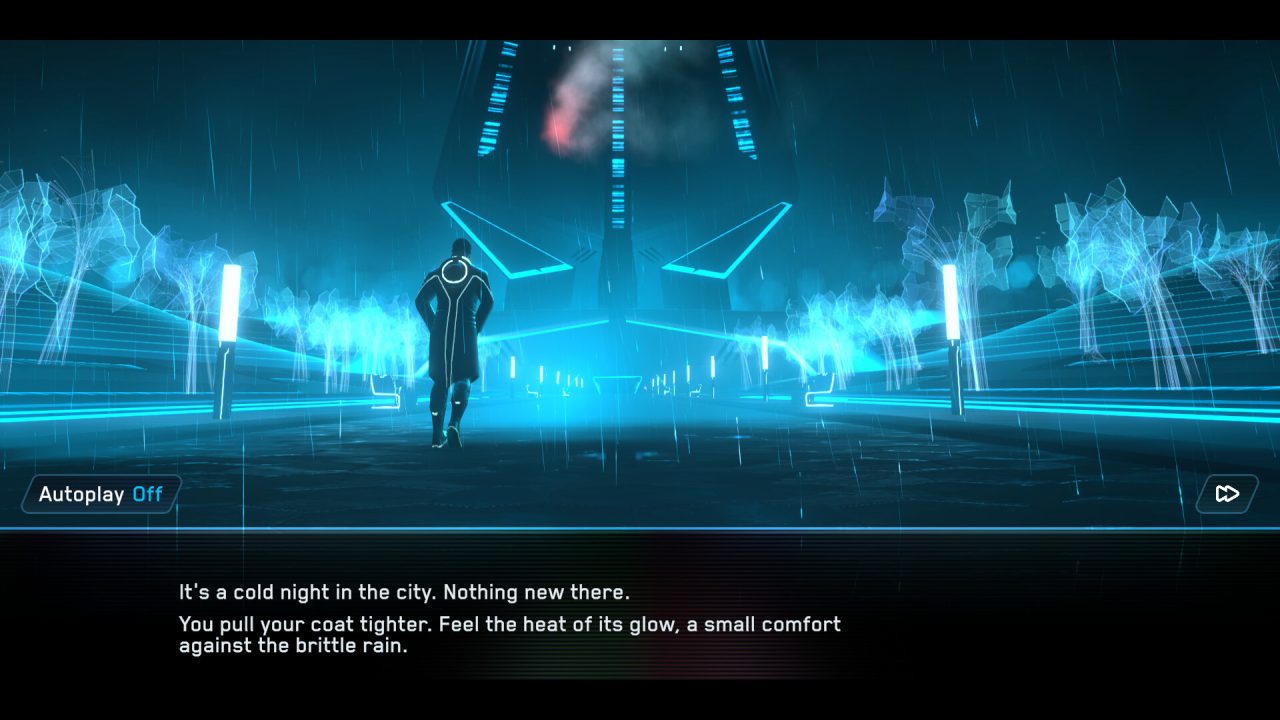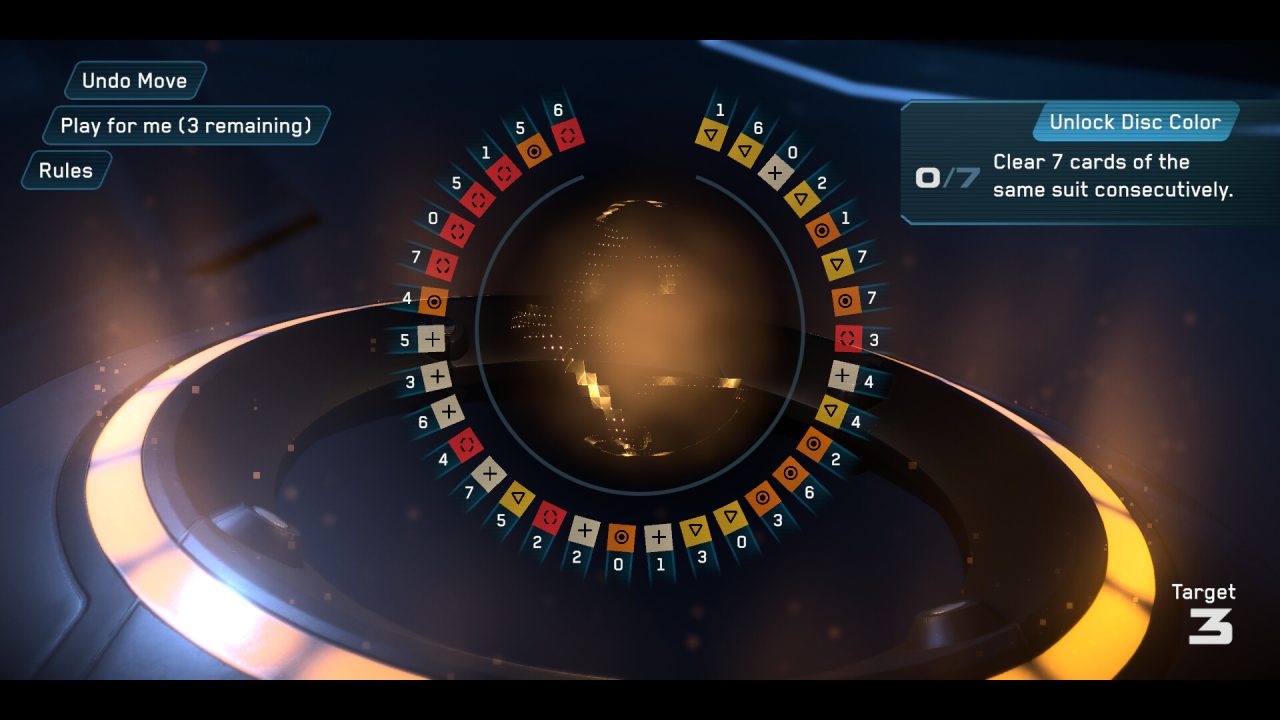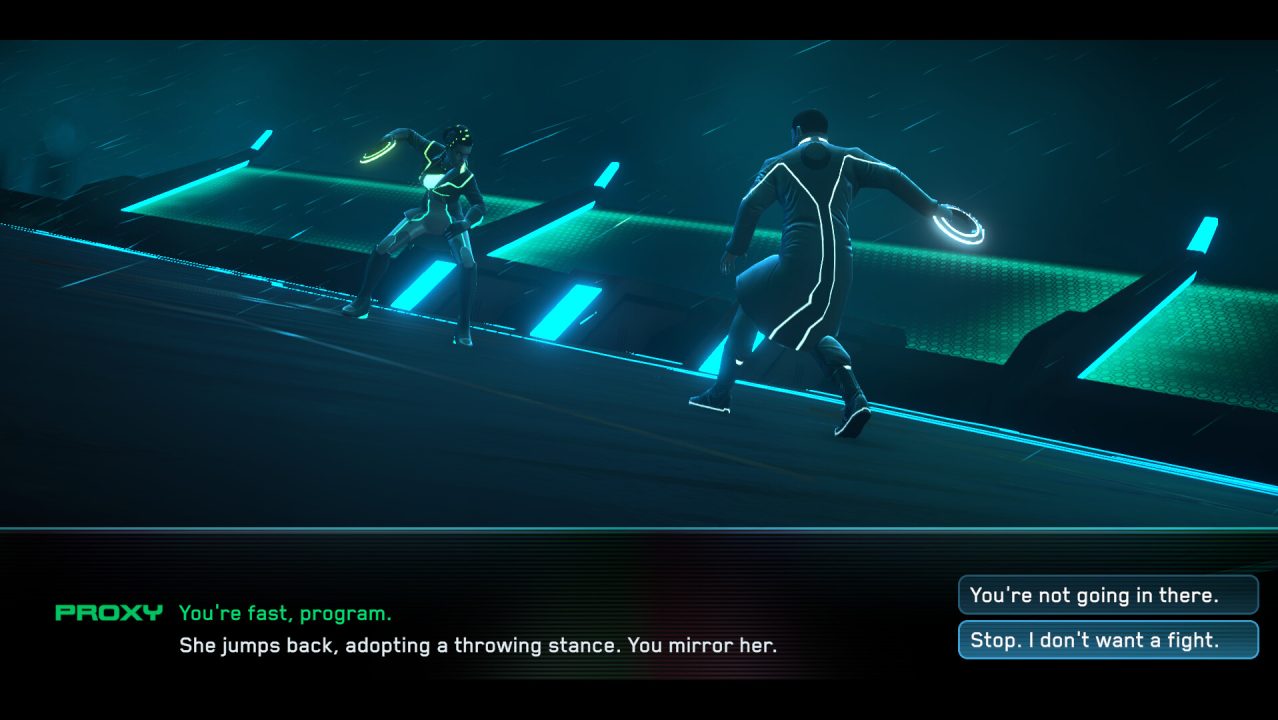I adore Tron: Legacy. The 2010 sequel to the groundbreaking original Tron, with its neon-soaked visuals and Daft Punk’s electrifying score, was an audiovisual feast unmatched in terms of sheer aesthetic. It also launched the career of director Joseph Kosinski, one of Hollywood’s most underappreciated filmmakers, who would go on to direct Tom Cruise in last year’s magnificent Top Gun: Maverick. Despite attaining a massive cult following and making a tidy profit at the box office, Legacy didn’t exactly set the world on fire critically, and efforts to expand on the Tron property stalled indefinitely: there was a short-lived Disney XD animated series and that one endless runner game, but that’s about it. That’s why it was such a delightful surprise when, in addition to a third Tron film evidently entering production (knock on wood, and regrettably featuring Jared Leto, which is a discussion for another day), we got ourselves a brand-new video game, a visual novel called Tron: Identity. Developed by Bithell Games, the studio behind Thomas Was Alone, how does this return trip to The Grid fare? Overall, pretty well, although Identity isn’t without its foibles.
Tron: Identity takes place on the Arq server, a separate Grid developed by creator Kevin Flynn in order to protect the miraculous programs called ISOs from the villainous Clu. In Flynn’s absence, life on this new Grid has flourished into its own civilization dubbed Vertical Slice, with a Repository of User artifacts and knowledge headed by the government body known as Core at its center. Players assume the role of Query, a detective program belonging to an organization known as the Disciples of Tron. Query has been summoned to the Repository to investigate an unprecedented crime: a theft where nobody at the scene remembers what was even stolen. Over the course of his investigation, Query meets various programs at the Repository, all of whom have their own agendas and ideals, and makes decisions that may ultimately uncover a truly profound secret about this new Grid.

The game’s strongest elements are its writing and worldbuilding: lurid descriptions of the rain-slick streets of Vertical Slice and the various mechanics at play in the digital frontier of the Grid will intrigue anyone with a passing familiarity with the Tron setting, and the game is dripping with noir atmosphere. Newcomers, on the other hand, will likely be utterly confused. You have to buy in to the core concept of computer programs having attained sentient life, and a world full of “ships, motorcycles,” and “circuits like freeways.” That being said, if you are a fan of the source material, then Tron: Identity’s story will serve as a fascinating expansion on some of Legacy’s themes. In particular, the concept of Users as objects of religious fervor, the limitations of blind faith, and government censorship of ideas and information become heavy topics of conversation over the course of Identity’s runtime. And it’s a brief runtime: you can likely complete an initial playthrough in about three hours, with only a single setting (the Repository) and a small but lively cast of core characters featuring prominently, but the smaller scope helps keep the narrative focused. I was also quite pleased to see a nonbinary character with a prominent role in the tale.
As far as gameplay is concerned, Tron: Identity can be neatly split into two distinct segments: the text-based adventure portion, and the “defragging” puzzles. Query visits different areas of the Repository in order to speak with its residents, with different dialogue options having an impact on the direction of the story. Were you nice to Grish, the stoic guard in the Repository lobby, for instance? How about the suspect du jour, Sierra, who was arrested due to his suspicious proximity to the crime scene? Aside from dialogue options, there are occasionally little icons on the screen that, when selected, will unlock a codex entry that sheds a little more light on an object in the environment. A lot of these are mostly just curiosities that help to flesh out the setting, but the codex also keeps track of your decisions on a branching flowchart for each character, helping you to see where you stand with each NPC. It’s a fairly tried-and-true formula for a visual novel, and it works well. The short length might be a turn-off for some, but at a budget price of $15 and a couple of different routes to traverse, it’s not too big a deal.

The “defragging” puzzles, on the other hand, are probably Tron: Identity’s weakest link. At key moments in the story, Query will have to borrow the Identity Disc of a program in order to defragment it and help them uncover a missing memory file. These memories are your main clues for progression, but the puzzles themselves are fairly bare-bones matching minigames that feel like an afterthought. Basically, you have to match cards with numbers and suits adorning them. Cards can be moved up to three spaces adjacently, and matching two cards will get rid of one of them, with the goal being to reduce the number of cards to a specific amount. There are a few mechanics thrown in later to mix things up, like cards that switch places or duplicate after a certain number of moves, but that’s about as complex as these puzzles get. They’re not bad; they’re at worst inoffensive. But they’re not particularly interesting, and I suspect that the developers know this, as all of the puzzles in the story can be skipped. There is an Endless mode accessible from the title screen that lets you play just the defragging puzzles if you do happen to enjoy them, which is a nice touch, but they’re far from the highlight of the experience.
To this day, nothing looks quite like Tron: Legacy, and Identity carrying that aesthetic forward is a feather in the game’s cap. The game’s art direction is sublime, and while there are a small number of different locations accessible, each of them feels visually distinct. Shimmering neon lights and the omnipresent dark clouds and pouring rain really give Identity a strong neo-noir vibe. The character designs are also quite nice, looking like they were pulled straight from a graphic novel. In terms of animation, there isn’t a whole lot going on, however, as images are mostly static with weather effects and characters bobbing their heads up and down. Aurally, the game excels. Dan Le Sac brings a unique sensibility to Identity’s score, drawing inspiration from the iconic motifs of Daft Punk’s Legacy soundtrack without copying them wholesale. The result is a more lo-fi electronic soundscape that perfectly matches the title’s vibes.

Overall, Tron: Identity is a solid visual novel that fans of Tron are sure to enjoy. While the weak puzzle elements hold the title back from true greatness, the game provides a fascinating glimpse into one of science fiction’s most beloved settings. I greatly enjoyed my return trip to The Grid, and hope that the existence of Tron: Identity is a sign of more to come.


